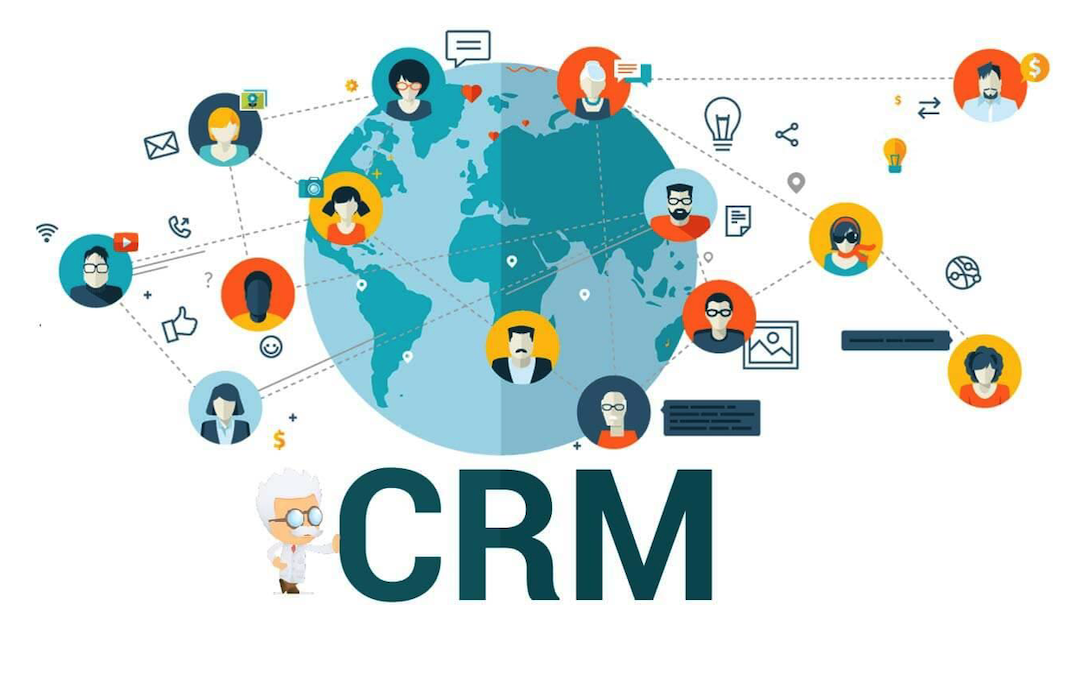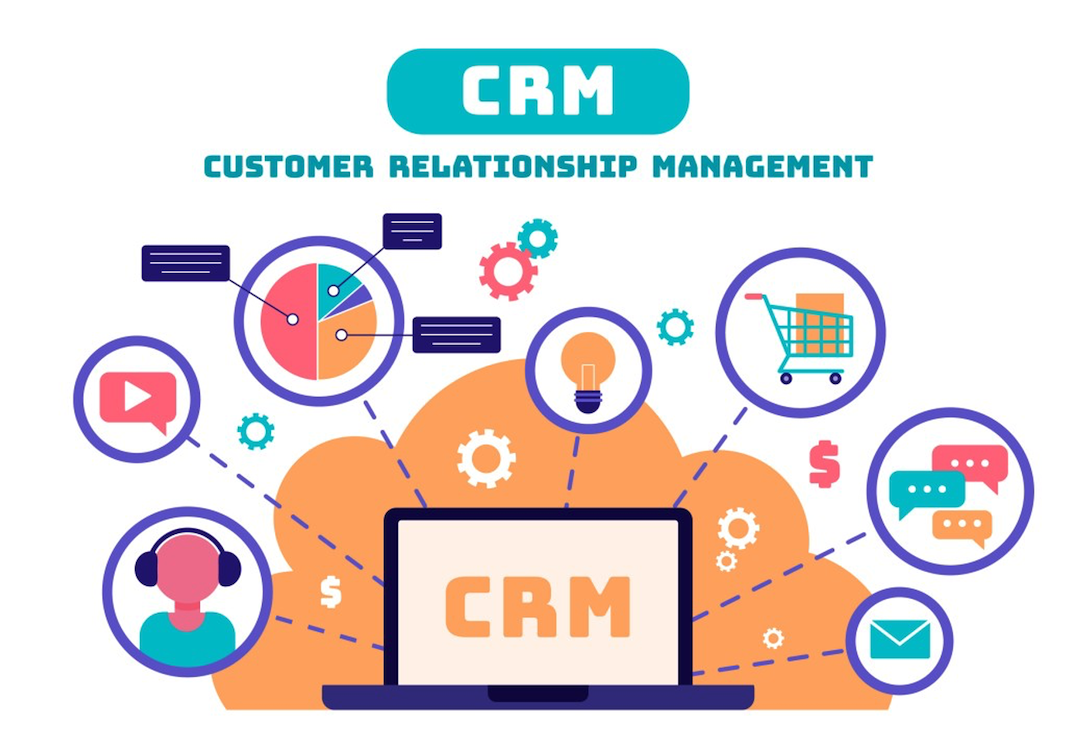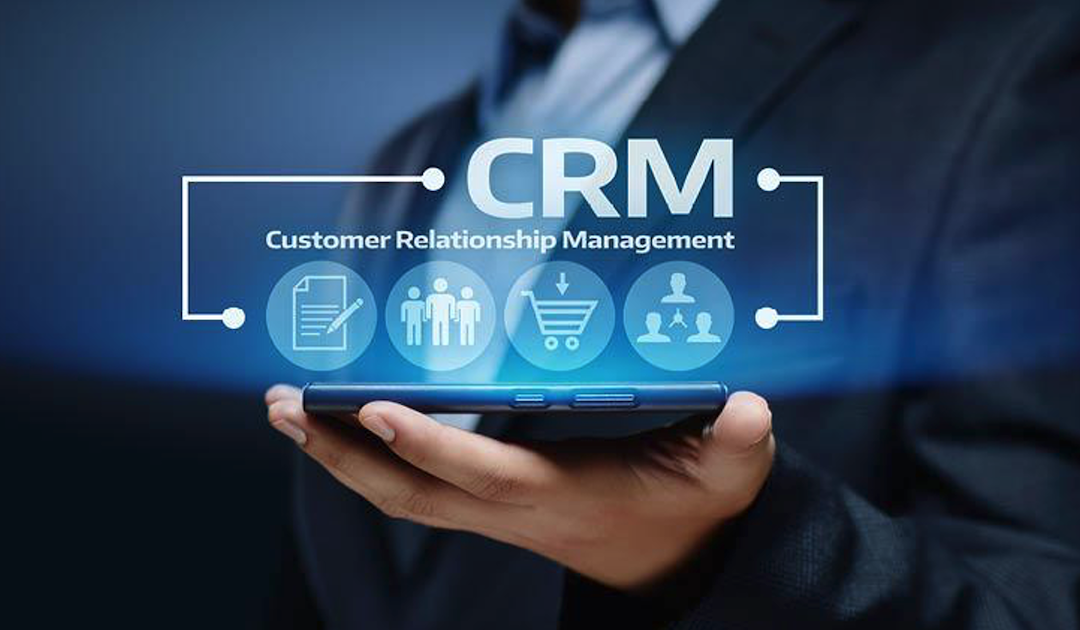
CRM software systems are comprehensive software suites designed to collect, store, and manage information about a company's potential and existing customers. These systems maintain records of addresses, phone numbers, and interaction histories with business representatives, and analyze their online activities. Remarkably, this software is enhanced with artificial intelligence, and surprisingly, it can be available for free. For instance, Bitrix24's free CRM is a versatile solution suitable for small and medium-sized enterprises. Let's delve into the specifics of free CRM and the trends of 2024.
CRM Systems: Differences Between Paid and Free Features
Modern free and subscription-based CRMs function similarly, with the primary difference being a slight limitation in features for the free versions. Some developers offer only one feature for free, with a complete suite becoming available upon payment. However, several free CRMs provide robust capabilities for small to medium businesses. Universal software products like Bitrix24 allow small companies to implement free options, with scalable plans available as your business grows.
In general, free CRMs offer features comparable to many paid plans, providing a full suite of services at no cost. This includes lead generation, automation of routine and global tasks, customer base segmentation, and accounting documentation management among other options. These systems can operate across multiple channels, manage financial reporting, store information, and integrate with external services.
Free CRM: Types and Features
CRM systems were designed for customer relationship management. Today, powered by machine learning and artificial intelligence, their functionality is ever-expanding, making them integral to business processes.
There are four types of free CRM:
- Operational: Manages daily tasks, ensures continuous customer engagement, and gathers and analyzes information.
- Analytical: Focuses on collecting, analyzing, and storing critical customer data, segmenting storage, and making business forecasts.
- Collaborative: Facilitates communication within the company and integrates with external programs and messengers, excelling in omnichannel capabilities.
- Universal: Combines operational, analytical, and collaborative functions.

Tasks and Functions
The functionality of CRM is tailored to the sales department's focus, streamlining and optimizing administrative tasks for interacting with the target audience. With CRM systems, companies can efficiently manage various operational and managerial tasks:
- Create documents using suitable templates.
- Handle a large volume of requests.
- Send messages and notifications to clients.
- Assign tasks to staff.
- Generate online reports.
- Calculate service costs.
- Monitor transaction dates.
Implementing CRM boosts conversion rates, increases customer numbers, and enhances repeat sales. Advanced CRM software supports inventory and financial documentation management, and customizable settings for logistics management.
Data Collection by CRM
As the acronym CRM suggests, these systems collect personal information about clients, including contact details and demographic and geographic data. They also perform analytics and company goal forecasting through customer surveys and questionnaires. Moreover, CRM software gathers transaction data, offering insightful analytics on revenues, expenses, and the efficiency and quality of invoicing and payments.
Additionally, CRMs collect communication data, measuring and managing response times to emails, notifications, and calls, which aids in optimizing customer engagement strategies.

Advantages of Using Free CRM
The main advantage is the opportunity to utilize various functionalities at no cost, which appears very appealing for organizing and automating a company's activities using free software. Moreover, should you decide to expand the available options, you can easily upgrade to a paid plan without needing to switch from your current CRM system.
Other advantages include:
- Comprehensive automation of work processes.
- A user-friendly interface with the ability to integrate with other services.
- Quick and multi-layered online analytics.
Automating work processes significantly reduces the workload on managers, and minimizes errors due to staff oversight. CRMs record all actions in the database and promptly notify company managers of urgent tasks, such as making an important phone call or sending an email. CRM tools also simplify document management with internal templates and scripts and facilitate any kind of reporting.
Thanks to a convenient interface for client interaction and integration with external services, CRMs gather, store, and analyze customer bases, interaction histories, and their loyalty levels to the company, automating transaction processes. This functionality helps attract and retain customers, acquire new clients, and improve reputation.
A valuable feature of CRM is the creation of various analytical reports online. The software allows for monitoring of the work process and staff performance, assisting in work schedule planning. Interestingly, CRMs analyze sales funnel stages and eliminate inefficient advertising channels by tracking customer movements from website visits to purchase completion.
Trends 2024: Interesting CRM Insights
According to Fortune Business Insights, the global CRM market reached a volume of $71 billion in 2023, with expectations to more than double by 2030.
What to expect in the CRM market in 2024:
- Enhanced functionality through the integration of artificial intelligence.
- Increased interest in universal system products like Bitrix24, offering a rich set of features in the free version.
- Development of business analytics capabilities and improved forecasting options.
Conclusion
Analysts believe that the growing demand and popularity of CRMs are due to their high level of customer orientation and quality personalization. When choosing a suitable system product, it's crucial to thoroughly analyze the CRM's functionality in the context of compatibility with your business. The easiest approach is to opt for universal free CRMs like Bitrix24, which can be configured for virtually any type of business, and upgrade to a premium version when demand for additional features arises.
Share this post
Leave a comment
All comments are moderated. Spammy and bot submitted comments are deleted. Please submit the comments that are helpful to others, and we'll approve your comments. A comment that includes outbound link will only be approved if the content is relevant to the topic, and has some value to our readers.

Comments (0)
No comment